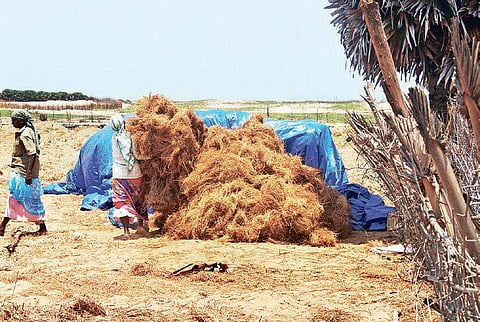

MUMBAI: A silent revolution is taking place in the drought-prone districts of Latur, Osmanabad and Solapur with womenfolk emerging as harbingers of change by strengthening the local economy and improving their socio-economic status through sustainable agricultural practices. Vaishali Ghuge from Andur village in Solapur district has excelled the technique of vermicompost. She switched from chemical fertilisers to organic manure two years ago and in her two acres of farmland, she has developed eight vermicompost pits. “By selling vermicompost, vermiwash and earthworms, I earn around `2 lakh each year,” Vaishali said.
Brought up in Pune, Vaishali had little knowledge on farming when she moved to the small village here after marriage. She joined the women’s self-help group (SHG) to generate additional income for her family.“I needed money primarily to meet the rising medical expenses of our family. As I got more and more involved in running our SHG, I realised that most women in the group had the same problem. I realised that the money loaned out to women was mostly spent on illnesses and so most of them were not able to return it on time.
The idea of switching over to organic farming was actually to save some money on growing crops like sugarcane,” Vaishali said. She is happy that the decision has not just increased their income but, a regular supply of green vegetables grown in her own farm has increased the immunity of her family members.
Vaishali represents over one lakh women who have adopted the climate-resilient farming model created by Swayam Shikshan Prayog, an NGO working in Marathwada. Anita Khanapur from Masala village said adopting this model of farming helped her save enough to send her daughters to Pune for education.
Parvati Naravade says that after realising the potential of this method of agriculture, she has ensured that her brothers practiced it too. Their group in the village grows 33 different kinds of vegetable crops in their farms. The NGO introduced the method to the womn’s SHGs in 2014. It involves using adaptation and mitigation tools to build resilience to climate change. It helps them ensure food security and provides sustainable livelihood besides increasing productivity.